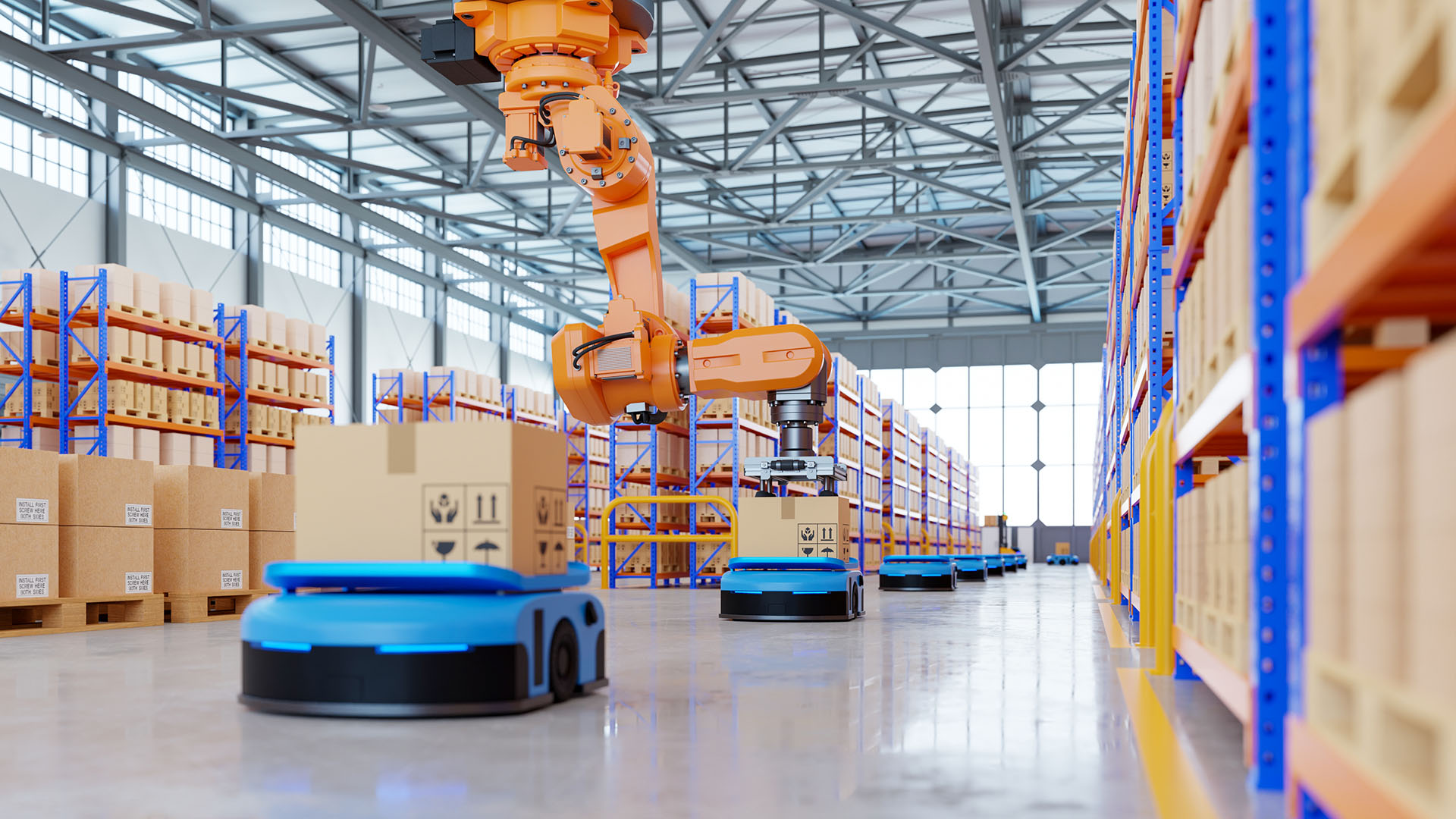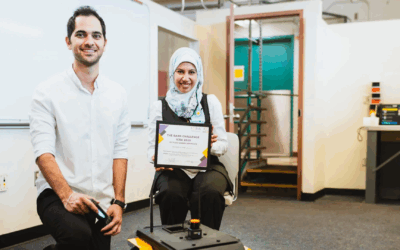As a potential global economic slowdown looms on business owners’ minds, companies in all industries are looking for innovative ways to maintain and grow. One specific sector of Industry 4.0 technology, robotics, is increasingly being relied upon by all industries. From the robots of Industry 3.0 to today’s advanced robots, these machines have helped companies develop more diversified revenue streams, increase capacity utilization, reduce costs, and improve employee ergonomics. We’ll discuss trends from thought leaders and robotic providers and explore how companies can make more informed investments in robotic solutions, whether now or down the road.
From a recent article by Meili Robots, distributed through Automate, advanced robotics may change how manufacturers and other businesses provide value to their customers. Some of these changes solve common business problems with more efficiency and scale. Collaborative robots (cobots) and autonomous mobile robots (AMRs) are increasingly being made for specific applications to replace mundane and dangerous tasks. In Omron’s Ayabe factory, mobile robots transport heavy parts across the plant, saving employees’ backs and reducing lead time by 80%.
AMRs and cobots aren’t just being used to move items around the shop floor. Many companies are finding AMRs and cobots to help gather data as well. A manual process can be error-prone, reliant on an individual’s expertise, and may involve extra safety precautions in a hazardous environment. Also, installing sensors on individual machines may be expensive, cumbersome, and provide limited data types. As Boston Dynamics notes, an AMR or cobot can collect multiple data types that help prevent downtime on a plant or shop floor, saving thousands of dollars. According to an IoT Analytics 2021 survey, 83% of senior IT and OT managers saw an ROI on predictive maintenance implementations, and 45% earned back their investment in less than a year.
A solution in robotics that people may not traditionally associate with it, is robotic process automation (RPA). Think of a robot on the plant floor performing the same functions over and over, like welding the same spots on a car frame. However, RPA extends that same capability to software. For example, hospitals have used RPA to improve employee and client satisfaction, leading to better profitability. For manufacturers, RPA can be used to solve a variety of business problems, such as making purchasing materials more efficient. RPA can be more flexible and cost-effective than developing integrations between hardware and software systems, especially if businesses use legacy systems that may not communicate with their current cloud-based systems.
Although we’ve covered many ways robotics can be a worthwhile investment, companies may not have the upfront capital and maintain their new equipment, especially if the use case is relatively simple or may change. Robotics providers enable more financing flexibility with Robotics as a Service (RaaS). The concept is similar to Software as a Service, in which companies pay a subscription to use a provider’s software, like enterprise resource planning (ERP). RaaS provides companies more flexibility and adaptability, improving the ROI of their robotics implementations. Some providers of RaaS offer Fleet Management Systems (FMS) as part of their service, which can perform analytics, monitoring, and preventive maintenance in addition to providing a robot.
Another concern facing manufacturers is ensuring robots can adequately communicate with each other. The interoperability of robots is a growing challenge, especially if companies purchase robots from different manufacturers. Given the array of problems in production facilities, buying robots from the same manufacturer may not be feasible. Proper planning with in-house robotics experts can help resolve or prevent robot communication issues. If companies don’t have in-house experts, RaaS and FMS from robotic solution providers help maintain safety and efficiency as the company implements new robots and configurations.
For small and medium-size manufacturers, time and capital are precious resources that may be unavailable to overcome these technological challenges. As orders pile up, the decision to invest in new technologies like cobots can seem more of a hindrance in the short term. Fortunately, programs are available to manufacturers to ease the time and cost hurdles of Industry 4.0 projects, improving a manufacturer’s resiliency in the long term. For example, the Michigan Economic Development Corporation is offering a 50% match up to $25,000 for companies looking to implement an Industry 4.0 project like robotics. Similar programs designed to subsidize and support Industry 4.0 projects are also available to manufacturers in Iowa, Indiana, and Connecticut. For companies unsure about how robotics can improve their bottom line, Behco and Blue Bay Automation provide tools and metrics to estimate the ROI on a potential robotics implementation.
As users of robotic solutions continue to face an ever-changing landscape, so will the capabilities and efficiency with which these machines operate. Companies in all industries, especially manufacturing, must keep their thumb on the pulse of what’s new. At Automation Alley, we stay close to cutting-edge robotics technology in our Industry 4.0 Accelerator. For example, Norwegian startup Wheel.me has developed the first autonomous wheel, enhancing the definition of what can be an AMR. Not all solutions are fit for every company. However, being tuned in can help improve your odds of finding the right one.
If you’re interested in learning more about robotics companies in our ecosystem, feel free to reach out. We hope it’ll be the spark that creates short and long-term value for your company.
Eric Davis is the Chief Operating Officer of Project DIAMOnD at Automation Alley, where he oversees day-to-day operations, financial stewardship, and resource allocation to keep the program running smoothly. He has extensive experience conducting due diligence on public and privately held companies, is a registered investment advisor, and held a financial role for other non-profits. He previously coached varsity football at Southgate Anderson High School. Eric earned both his MBA and BBA (Finance) from Eastern Michigan University and is a Level III candidate in the CFA Program.




